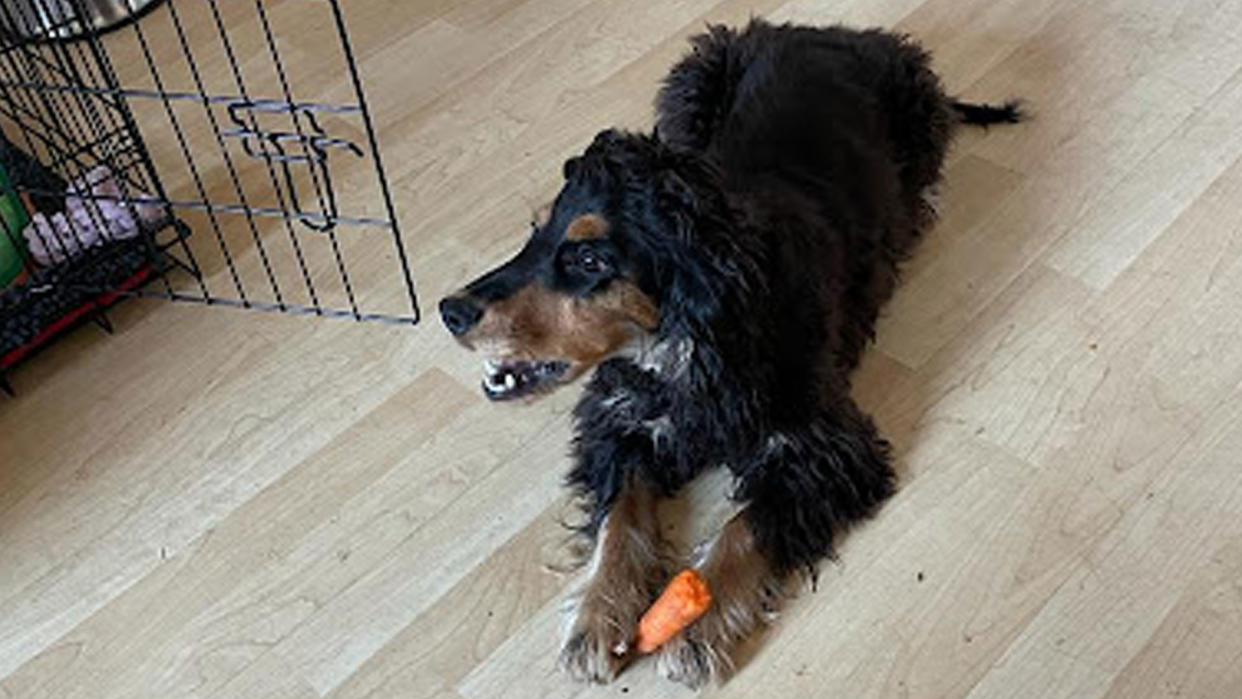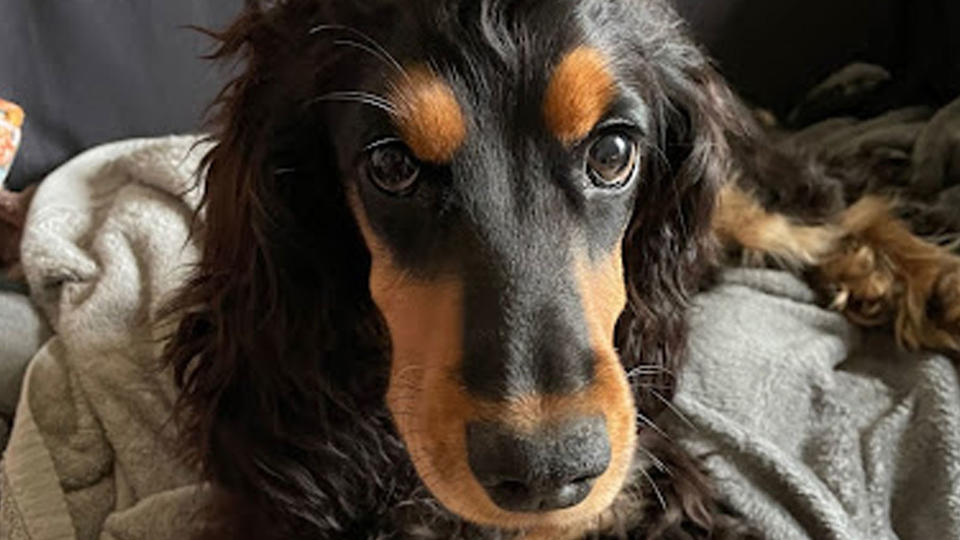I tried this ridiculously simple tip and it's stopped my puppy chewing just about everything

When I first brought my four-month-old cocker spaniel puppy, Bonnie, home, I thought I was prepared for everything. I'd gone through my home with a fine tooth comb, lifting anything that wasn't dog friendly above her height. I'd stocked up on food, bought a selection of the best puppy toys to keep her amused, and cleared my work schedule for bonding time. Bonnie settled in so well that I could barely remember life without her in it, but within a few weeks, I encountered a problem I should have anticipated – chewing. First, it was sticks then, we'd stop on walks so she could gnaw at fallen branches. Next were the legs of the IKEA table in the living room and even the base boards.
When I started to find tiny teeth dotted around my flat, I realized that teething was the main issue but felt unprepared to deal with it. Of course, I wanted to ease her discomfort, but I also needed to know if she would grow out of the chewing behavior. I knew I would have to dedicate some time to finding a solution, at the very least, before she tore lumps out of another piece of furniture.
Why do puppies chew?
I spoke to Certified Animal Behaviorist Caroline Wilkinson to learn more about why puppies chew. She explains, "There are multiple reasons that we can experience the challenge of puppy teething and biting. It's important to understand why your puppy uses their teeth at any given time. To start with, teething hurts. As our puppies lose their baby teeth and grow new ones, moving their mouths on objects can help to alleviate some discomfort or help the process of the loss and regrowth."
Wilkinson says there are also simple biological reasons for chewing, "Dogs are carnivorous, with mouths created to not only chew but also rip and tear meat, as well as the ability to break through bone. When we don't regularly provide chewing outlets for the natural behavior of moving their jaw, our pups will find something else to use their mouths on. Chewing also aids dental health and digestion of food, so it's really important that we encourage our dogs to chew the right things on a regular basis."
"Finally, chewing feels good! The chewing process creates feel-good, calming hormones in the dog's body. If your puppy is experiencing a lot of new things or has had too much fun time and not enough sleep, then you might see a surge in their chewing behavior.”
Here's what I tried…
Bonnie had already demolished several 'indestructible' dog toys that friends recommended, so I cast the net wider. I spent hours reading articles and forums for toys and chew recommendations (like some of the longest lasting dog chews). Every day a parcel arrived with a new teething toy that Bonnie blindly ignored. I quickly learned that cocker spaniels are not only intelligent but strong-willed! I tried lick mats, food puzzles she solved within a few minutes, and plenty of play and fresh air. Nothing seemed to work.
One day at the local park, I met another spaniel owner who had a puppy a few months older than Bonnie. I asked how she'd dealt with teething because I was being driven to distraction. She asked if I had tried carrots. At that point, I hadn't. After some initial digestive issues, Bonnie had been on such a strict diet that I hadn't even considered adding vegetables to the mix. The vet confirmed that carrots shouldn't cause any issues, so I bought a bag to try.
The first few times I tried to feed Bonnie the carrots, she looked at me like I'd grown another head. Her expression said, "What do you expect me to do with that?" Rather than forcing the issue, I would leave half carrots in her crate, where she sometimes likes to chill out. One afternoon I was out of the room when I heard the unmistakable sound of crunching. Success! I returned to the room to find her happily gnawing away and felt a wave of relief.
Buying carrots in bulk meant that they went soft quite quickly, so I started freezing them whole. One day as I brought a carrot out of the freezer to defrost, Bonnie picked it up and started chewing. Something clicked; the solid nature made chewing more of a challenge and the coolness soothed her mouth, and she seemed overjoyed with the frozen treat, pushing it around the room and pouncing on it. I don't know who was happier with this development – her or me.

If you’re dealing with chewing behavior in your dog, know you’re not alone. Carrots may not be a miracle solution for you but thankfully, there are many things you can try to help. Caroline Wilkinson says, "Avoid telling your puppy off if they chew the wrong thing. Instead, redirect them onto an appropriate item to chew - or remove your attention calmly if they're getting hyper. Then, once they've calmed down, encourage them to take a nap to relax."
"Praise your puppy or throw them a small treat when they are using their mouths on the right items, whether that be filled food toys, chew toys, or natural dog chews. Provide attention whenever your puppy has made a great decision on their own - such as when they go and take a nap or pick up a chew root to chomp on when they've got a bit overwhelmed."
Amazingly, since I introduced frozen carrots, Bonnie has never chewed a piece of furniture. It could be that she's naturally reached an age where she's no longer teething or has outgrown the behavior. She still loves to grab a stick on her walk and give her mouth a good workout, but I haven't had to replace any furniture, and found an edible, healthy treat that won't break the bank.
For more advice dedicated to puppy owners, we asked an expert is puppy growling when playing a sign of aggression?

